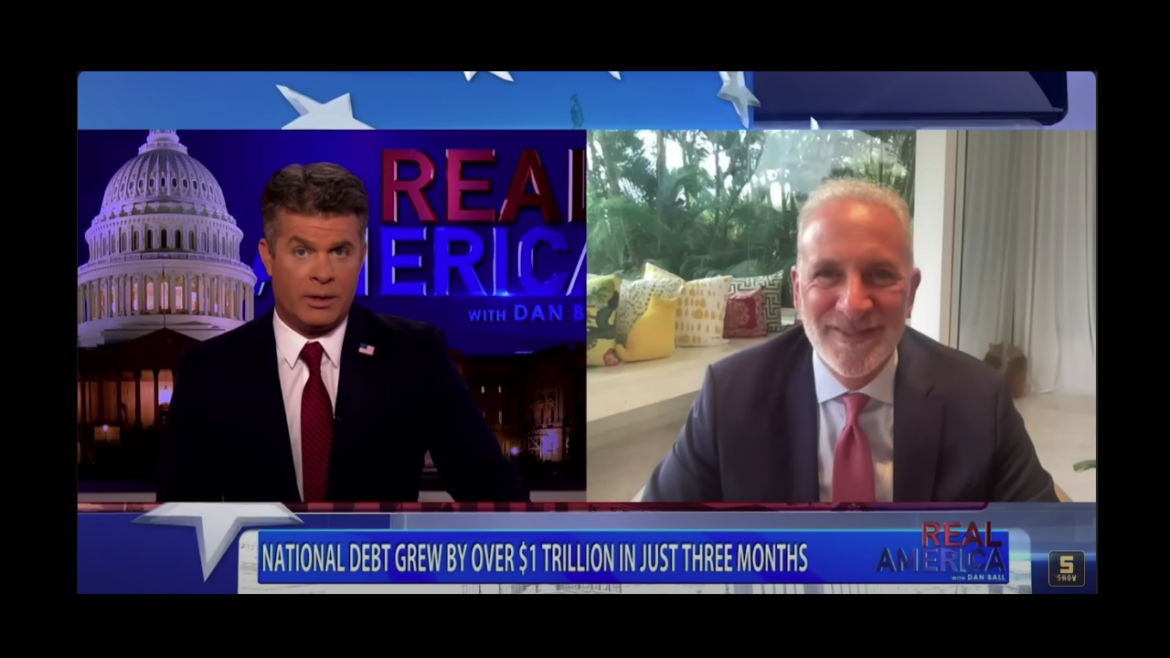Gold has all the potential to go unprecedentedly high. But silver will be gold on
Site:
Precious metals news
Oct 16, 2023 - 09:19:14 PDT
Michael Barr of the Federal Reserve addressed the proposal for larger U.S. banks to maintain higher capital levels, highlighting the potential economic loss of up to $25 trillion in another crisis. Despite pushback from big banks, he emphasized the importance of capital for stability. He noted that instead of building capital, many banks have been boosting share prices through stock buybacks. Barr countered arguments that higher capital requirements would limit lending, pointing out past financial crises caused by undercapitalized banks.
The mortgage crisis is unique, with the primary problem being the mortgages themselves. While the Fed's BTFP program offers some protections, the true danger lies in commercial real estate. Many banks have heavily invested in big-city commercial loans. With the downturn in the commercial market, a cascading effect of loan losses and decreasing property values is emerging. The main threat to banks is commercial real estate, overshadowing the struggles of the residential market.
 Amidst Bond Turmoil and War, Fed Powell Grapples with a Crucial Decision Point
Amidst Bond Turmoil and War, Fed Powell Grapples with a Crucial Decision PointOct 16, 2023 - 07:32:48 PDT
Powell faces a tightrope walk in addressing rising inflation and interest rates. Speaking soon, his comments will be closely watched for hints on the Fed's next moves. Recent swift increases in bond yields indicate the central bank's policy may be at a crucial crossroads, with analysts noting a shift from just inflation to also preventing a potential recession.
Oct 16, 2023 - 07:16:21 PDT
Despite Paul Krugman's assurance that inflation's grip is loosening, recent reports suggest otherwise, indicating that the flames of inflation are stubbornly persistent. Desperate to keep pace with escalating prices, consumers are increasingly leaning on credit cards, leading to a staggering 38% growth in credit usage since April 2021. Alarmingly, this surge occurs in the backdrop of steep interest rate hikes. An even more ominous sign is the rising credit card delinquency rates.
Skyrocketing mortgage rates, the highest in nearly a quarter-century, are wreaking havoc on the housing market, pushing home sales to distressingly low levels reminiscent of the subprime disaster era. Anticipated sales for 2023 suggest that previously owned homes will be moving at a glacial pace, reminiscent of the grim 2011 figures. Back then, the U.S. was grappling with the aftershocks of one of its most catastrophic housing crises. Now, despite a ballooning U.S. population, the market shows alarming signs of stagnation, a dire outlook echoed by a multitude of alarmed economists.
The staggering $307 trillion global debt, largely driven by so-called 'developed' economies, is a ticking time bomb. The US, Italy, and Britain are precariously teetering on the edge, with their fiscal irresponsibility making them the chief culprits. Noteworthy economists and investors sound the alarm, but the inaction persists. Immediate defaults might not be on the horizon, but without rigorous fiscal reforms, higher taxes, and genuine growth, disaster looms. The current geopolitical quagmire, combined with dwindling central bank support, sets the stage for an imminent and severe market crash.
Leading experts, including JPMorgan's CEO Jamie Dimon, are sounding alarms over escalating US debts and global tensions from wars in Ukraine and Israel. Dimon called it potentially the "most dangerous time in decades." Added to these woes are the Federal Reserve's measures which might choke market liquidity. The unexpected surge in US Treasury yields is just one indicator of the market's delayed realization of these looming financial threats.
Mounting debts in developed economies, exacerbated by climate change costs and political turmoil, are pushing the world closer to a potential financial collapse. A significant portion of the global debt increase, now at a staggering $307 trillion, is attributed to developed nations, especially the U.S., Italy, and Britain. The current scenario indicates that these nations might not escape economic fallout. With dwindling central bank support and escalating borrowing costs, there's an alarming risk of a market catastrophe. Urgent calls for reforms are largely being ignored, setting the stage for potential crises within the next decade.
Rising bond yields indicate the end of cheap borrowing, intensifying global economic concerns. At the recent IMF meetings, attendees warned of potential shocks to an already fragile world economy due to increased Middle Eastern conflicts. High debt levels coupled with persistent high-interest rates present potential pitfalls, as highlighted by recent US bank collapses and ongoing real estate concerns. These issues have taken center stage in discussions among global finance leaders.
Joe Biden says the economy is great. Paul Krugman says the inflation war is over and we won. But Americans aren't buying the narrative. They're growing increasingly worried about the economy and inflation.The University of Michigan Index of Consumer Sentiment tanked in October with inflation worries at the highest level since last May.
The CPI has cooled in recent months, but Americans say they're still struggling with rising prices and they're worried about inflation. Why is there this dichotomy between people's perceptions and the official data?Peter Schiff recently appeared on Real America with Dan Ball to talk about the economy. He said the problem is the government isn't being honest about inflation.
 METALS & MARKET UPDATE OCT 14th: Middle East Conflict May Cause Serious Disruptions To Highly Leveraged Global Markets
METALS & MARKET UPDATE OCT 14th: Middle East Conflict May Cause Serious Disruptions To Highly Leveraged Global MarketsOctober 14, 2023
If the Middle East conflict escalates, this could be very BAD NEWS for the highly leveraged financial and economic markets. It's no wonder the gold price surged by $64 on Friday. Unfortunately, any major disruption can cause chain-reaction defaults in finance and move to the safety of hard assets...
Gold, escalating by 13% annually, 54% in the past five years, and a staggering 407% over two decades, firmly stands as a resilient wealth preserver even amidst minor financial fluctuations. China, with its unrestrained gold acquisition, positions itself as a crucial actor in the global financial arena, subtly undermining Western economic stability. The massive import and robust production of gold by key players like China and Russia underscore the precious metal's veiled yet paramount role in future economic confrontations, revealing a clandestine race for gold-driven fiscal security on the global stage.
Global economic turmoil looms with the U.S. facing a dangerous spike in Treasury yields and a potential credit crunch, China navigating a burst housing bubble, and Europe teetering on recession and a renewed sovereign debt crisis. Concurrent crises in key economies may plunge the world into a severe financial disaster by mid-next year, demanding urgent, yet currently unforthcoming, policy responses.
 Treasury Auction in Weak Demand Amid Fears That Soaring US Debt Will Overwhelm Wall Street
Treasury Auction in Weak Demand Amid Fears That Soaring US Debt Will Overwhelm Wall StreetOct 13, 2023 - 12:50:20 PDT
Weak demand in a recent Treasury bond auction raises alarms as the U.S. sells $20 billion of 30-year bonds, with dealers absorbing an unusually high 18% of the supply. The narrow auction tail and rising yields reveal declining demand amidst surging federal deficits and the Federal Reserve's quantitative tightening, fueling concerns over Wall Street's ability to handle the escalating U.S. debt supply.
The Congressional Commission urges the U.S. to urgently expand and restructure its nuclear arsenal in response to escalating threats from China’s rapidly growing nuclear capabilities and existing risks from Russia. The U.S., presently "ill-prepared" to handle two major nuclear adversaries, requires a substantial and swift overhaul of its nuclear forces and strategies to effectively navigate the evolving global threat landscape.
 The IRS Says Gap Between U.S. Income Taxes Owed and Paid Is Set to Keep Growing
The IRS Says Gap Between U.S. Income Taxes Owed and Paid Is Set to Keep GrowingOct 13, 2023 - 12:30:28 PDT
The IRS is grappling with a growing "tax gap," as unpaid taxes notably increased to $688 billion in 2021 and $601 billion in 2020, up from $550 billion and $496 billion in 2017-2019 and 2014-2016 respectively. Despite most Americans paying their taxes voluntarily, the continual upsurge in annual unpaid taxes underscores the escalating challenge faced by the IRS to ensure comprehensive tax compliance among citizens.
Elevated risks loom over the U.S. economy as the Federal Reserve navigates a highly leveraged financial environment amidst its "higher for longer" strategy. Historically rooted patterns suggest the intersection of surging debt and restrictive financial conditions may steer towards a crisis, particularly given prior instances where rate hikes and yield curve inversions precede recessions. The heightened policy misstep risk amidst slowing economic growth and rising borrowing costs signals caution for potential crisis onset in the near future.
 UMich Inflation: Record 49% Of Americans Say "High Prices Are Wiping Out Living Standards"
UMich Inflation: Record 49% Of Americans Say "High Prices Are Wiping Out Living Standards"Oct 13, 2023 - 08:27:08 PDT
October's UMich data reveals a troubling economic outlook: inflation expectations soared to a disconcerting 3.8%, the highest since May 2023, while consumer sentiment plummeted to 63.0 from 68.1 due to rising inflation fears. A stark 49% of consumers report eroding living standards due to escalating prices, and the economic news index nosedives, reflecting increasing concerns about unemployment and price hikes.
 Gold Set to Mark Best Week in 7 Months as Markets Price in Inflation and End of Fed Hikes
Gold Set to Mark Best Week in 7 Months as Markets Price in Inflation and End of Fed HikesOct 13, 2023 - 06:48:46 PDT
Gold prices experienced a notable rise on Friday, potentially marking their best week since mid-March, as U.S. bond yields decreased, boosting the allure of the U.S. dollar-backed bullion. Spot gold increased by nearly 1% to $1,886.40 per ounce. A range of factors contributed to this surge, including a fall in U.S. Treasury yields and the dollar, strong U.S. inflation data, and the dovish policy stance of policymakers. Additional influences included safe-haven demand amidst conflict in Israel and evolving inflation data from China, the world's largest gold consumer. Spot silver also saw a 1.5% climb, positioning it for its first weekly gain in three.






